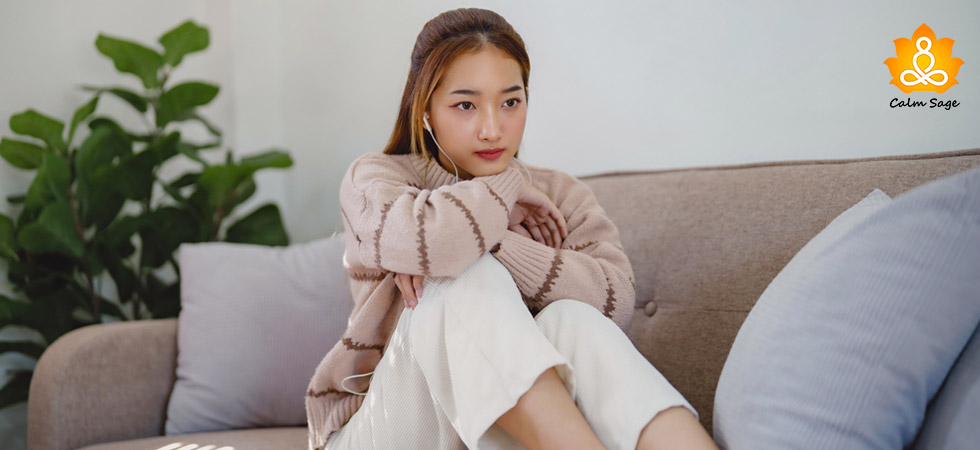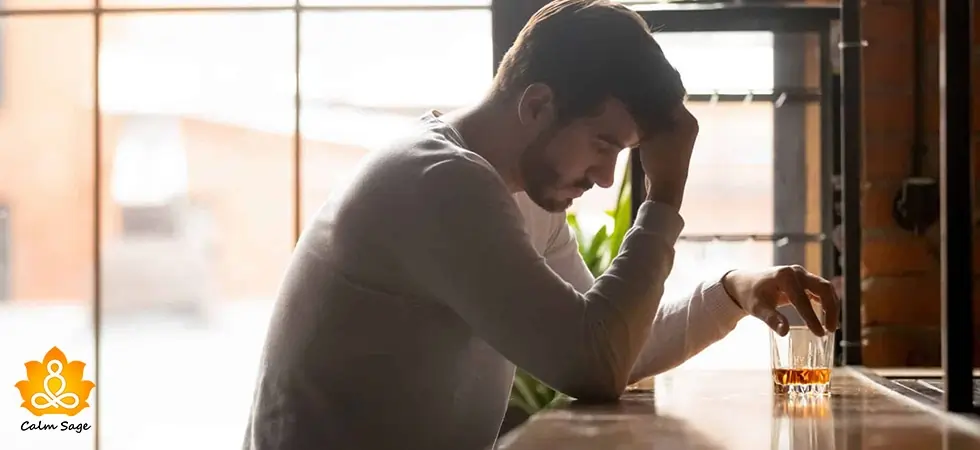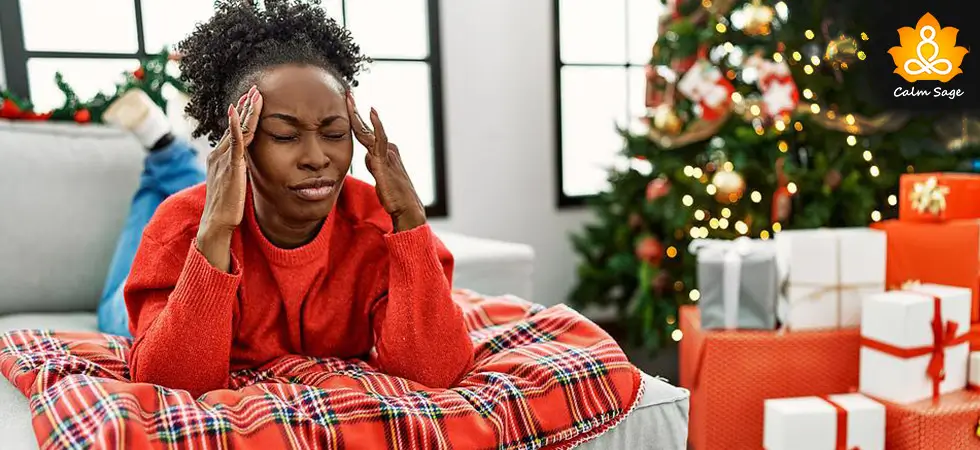Exploring The Curious Causes of Social Withdrawal + Tips to Cope With Them

I’m one of those people who would rather stay at home and watch Netflix all day than go out and mingle with others. But, staying at home and not going out to parties every weekend is my choice. I choose to stay home, read, or binge-watch. Does this make me a socially withdrawn person? Maybe, maybe not.
It does make me wonder about my nature from time to time though and if you’ve ever wondered the same about yourself or your loved ones, then you might be in the right place to get the answers you seek.
Social withdrawal is a curious behavior that can affect anyone for various reasons. This can involve anything from avoiding the company of others to avoiding activities you once loved. What we often fail to understand is that, as humans, we need social engagement and connections to thrive.
With time, I’ve learned to manage my alone time with social engagements, and trust me, it keeps me from falling into loneliness and despair. Because it helped me, I want to help you learn how to balance your solitude with social interactions without socially withdrawing.
Let’s start first by learning the signs of social withdrawal and then move on to the common social withdrawal causes, its negative effects, and how you can overcome your social withdrawal.
Social Withdrawal Signs to Watch Out

It’s not always easy to spot signs of social withdrawal, but there are some telltale signs that you might need to watch out for before your withdrawal behavior takes over your well-being;
- You spend more time in your company. You prefer Netflix to hanging out with your loved ones. While it’s OK to spend time with yourself, excessive alone time can be a sign of social withdrawal.
- You have become more silent than usual and where you would chatter endlessly about anything that took your fancy, now you keep the discussions to yourself. If this is something you’re familiar with, then take it as a sign of social withdrawal.
- You’ve started to skip social gatherings entirely and have this urge to spend time in solitude. You’ve even started making excuses to be alone. This can be a clear sign that you are socially withdrawing.
- You don’t want to try new things anymore and have started taking on tasks that can be done without a team. You also avoid any unfamiliar setting or situation. If this is something you can relate to, then beware, this can be a sign of social withdrawal.
The Causes of Social Withdrawal
You can’t fit social withdrawal into a one-size-fits-all situation. Various factors can contribute to the causes of social withdrawal. Moreover, these causes can vary from person to person. Here are some of the most common causes of social withdrawal;
-
Stress Overload
Because of too much work or other reasons where you are often overwhelmed with stress, you’ve come to retreat into your shell. You crave some quiet time and want to spend time alone to recharge yourself and while that’s OK, excessive alone time might take a toll on your health and well-being after a while.
-
Mental Health Reasons
Sometimes, it could be signs of hidden mental health conditions that can make you socially isolated and withdrawn. In some cases, social withdrawal can be a sign of conditions like depression, anxiety, autism, post-trauma stress, schizophrenia, and even substance use disorders.
It is recommended you speak to a professional therapist to understand what might be causing your social withdrawal symptoms.
-
Major Life Transitions
Big changes in life such as moving to a new place, starting a new job, and even relationship problems such as breakup or separation can cause adults to withdraw from social events and interactions.
-
Social Rejection
If you’ve been a victim of social rejection in your life at some point, then this could be another factor that can cause social withdrawal. It could include negative social interactions, racism or bigotry, being excluded in social groups, or meeting aggression from others in a social group.
-
Personality Traits
Some folks are just naturally introverted and shy and prefer limited social interactions. However, if you regularly turn down invites to social events, then others might perceive it as a rejection from your end and might stop extending social contact. This might result in isolation and exclusion, worsening the signs of social withdrawal.
The Social Withdrawal Syndrome
If you are familiar with signs of social withdrawal, then you must have heard about the social withdrawal syndrome. Don’t worry if you haven’t. Social withdrawal syndrome, also known as “hikikomori” is when you isolate yourself in your home for more than six months, effectively cutting communication with social groups.
The more you socially withdraw, the lonelier you’ll feel, and the more you’ll withdraw further. It can become a loop that you can’t escape. With time, you may also begin to withdraw from social situations, which can cause a strain on your relationships and cause a feeling of detachment from the world.
Social withdrawal syndrome or chronic social withdrawal can even become to affect your physical health, causing sleep issues and poor immunity.
The Effects of Social Withdrawal in Adults
Social withdrawal doesn’t just affect the one doing the withdrawal; it can have ripple effects on people around them as well. Some of the effects of social withdrawal in adults can include;
- Worried loved ones
- Missed opportunities such as networking, meeting new people, etc.
- Increased feelings of loneliness
- Increased risk of depression
- Increased risk of suicide or self-harm
- Increased risk of stroke or heart problems
How to Overcome Social Withdrawal?

If you can relate to the above-mentioned signs of social withdrawal, then here are some tips for you to help you overcome social withdrawal;
1. Take Care of Yourself
It’s OK to take some time for yourself and care for your well-being. Don’t feel bad for taking some alone time, but when doing this, make sure you maintain contact with your social connections with your loved ones. Try to go on coffee dates with your friends every once in a while, talk to your family members regularly, or even join a support group where you can continue to meet new people.
2. Work on Relaxation Techniques
Other than practicing self-care, you can work on relaxation techniques and healthy coping strategies. Exercises such as deep breathing, yoga, and mindfulness can help you regulate your anxiety and reduce your dependence on avoidance coping.
3. Try to Anchor Yourself
If you feel stressed or anxious and find yourself getting overwhelmed, then try to anchor yourself to the present moment. You can do this by noticing physical objects around you or sensations you feel. Look for things you can see and touch, listen to sounds you can hear, and let yourself feel the presence of your physical body. This can help soothe stress and anxious responses, making you feel calm.
4. Be Kind to Yourself
Even if you’ve begun to socially withdraw, don’t be harsh with yourself. Be kind and compassionate towards yourself and allow yourself to acknowledge that you’ve been isolating yourself. Try to avoid avoiding social situations and activities. Keep the positive self-talk going and motivate yourself to keep the social connections going.
5. Take Baby Steps
No one is telling you to rush into social situations headfirst. Take baby steps and start with low-pressure social interactions. Take your time to get used to social situations, events, and interactions. Taking part in small social activities will help you not feel overwhelmed and balance your limited interaction policy with regular social contact.
Wrapping Up…
Spending time with yourself in solitude from time to time is OK, but when the solitude you crave turns into social withdrawal and isolation, that’s when it can become troublesome. To avoid social withdrawal, it’s important to maintain a balance between alone time and social connections. Knowing the signs of social withdrawal and what causes social withdrawal can help you figure out how to overcome them and keep a perfect balance between isolation and social connectedness.
Whatever the causes of your social withdrawal, know that with the right help and coping strategies, you can move on and keep social connections without ruining your alone time.
I hope this blog helped you understand what causes social withdrawal and how to overcome the causes. Let me know what you think about this article in the comments below.
Take Care!




















